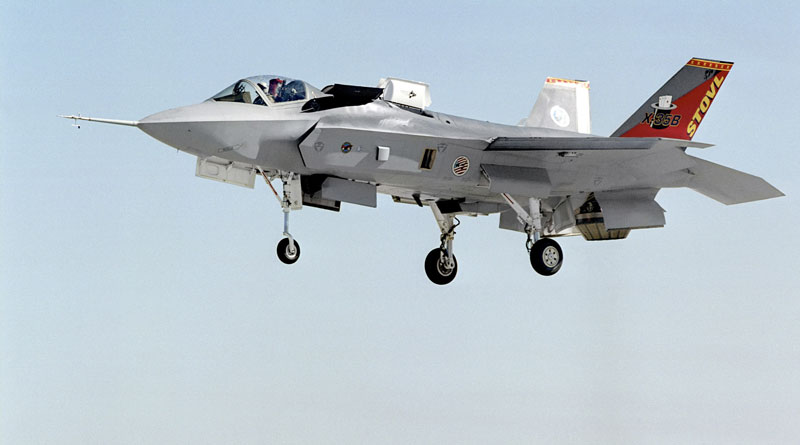Lockheed Martin Transitions more F-35 Suppliers to Long-Term Contracts
Leading global defence and aerospace company aims to reduce sustainment costs and enhance readiness through the new contracting approach
Lockheed Martin, the global security and aerospace company, has signed long-term contracts with additional F-35 suppliers in an effort to increase supply availability and reduce sustainment costs. The company has transitioned suppliers to longer term Performance Based Logistics contracts and Master Repair Agreements.
Lockheed Martin vice president and general manager of the F-35 programme, Greg Ulmer said, “As the F-35 fleet expands, we are partnering with our customers and taking aggressive actions to enhance F-35 readiness and reduce sustainment costs.”
Emphasising the role of suppliers in the world’s most advanced fighter aircraft programme, he said, “The F-35 global supply chain is a key enabler to success, and we’re restructuring and streamlining several contracts with key industry partners to provide the long-term stability that will allow them to make investments, improve efficiencies and optimise their performance. This is one of several actions we’re taking across the supply chain to improve capacity, reduce costs and enhance supply availability.”
The new multi-year PBLs will allow each company to make longer term investments and actions to reduce costs and improve efficiencies, a possibility less evident in the earlier annual contracts. In addition to PBL contracts, Lockheed Martin has established 12 Master Repair Agreements (MRAs) with key suppliers to enhance repair capacity and speed.
The PBLs cover several contracts with BAE Systems, Northrop Grumman and Collins Elbit Vision Systems (CEVS); and the MRAs cover contracts with 12 separate suppliers including Honeywell, GE and Eaton.
The initial multi-year contracts are already delivering benefits. A 2017 PBL contract awarded to BAE Systems for the Electronic Warfare subsystem is helping deliver a 25 percent improvement in the system’s availability throughout global operations.
As the F-35 fleet expands, the F-35 Joint Program Office-led Hybrid Product Support Integration (HPSI) team is implementing the Global Support Solution (GSS) to enhance readiness and reduce costs.
The F-35’s reliability and readiness continues to improve and newer production aircraft are averaging greater than 60 percent mission capable rates with some operational squadrons consistently near 70 percent. Additionally, Lockheed Martin has reduced its portion of operating costs per aircraft by 15 percent since 2015.
The F-35 enterprise’s goal is to deliver 80 percent mission capable rates in the near term, and achieve a USD 25,000 Cost per Flight Hour (CPFH) by 2025, which is comparable to the cost to sustain legacy aircraft, while providing a generational leap in capability.
As more aircraft enter service, the enterprise is optimising resources across the fleet and leveraging data across hundreds of thousands of flight hours to achieve these goals. The programme is conducting supply chain competitions, building supply chain capacity, synchronising spare buys, improving parts reliability and maintainability, implementing advanced analytics tools, enhancing the Autonomic Logistics Information System (ALIS), accelerating modifications of earlier aircraft, and supporting the stand-up of government-led regional warehouses and repair depots.
The company’s website describes the F-35 as being the most lethal, survivable and connected aircraft in the world with its stealth technology, advanced sensors, supersonic speed, weapons capacity and superior range. More than a fighter jet, the F-35’s ability to collect, analyse and share data, is a powerful force multiplier that enhances all airborne, surface and ground-based assets in the battlespace enabling men and women in uniform to execute their mission and return home safely, it says.


